00:55
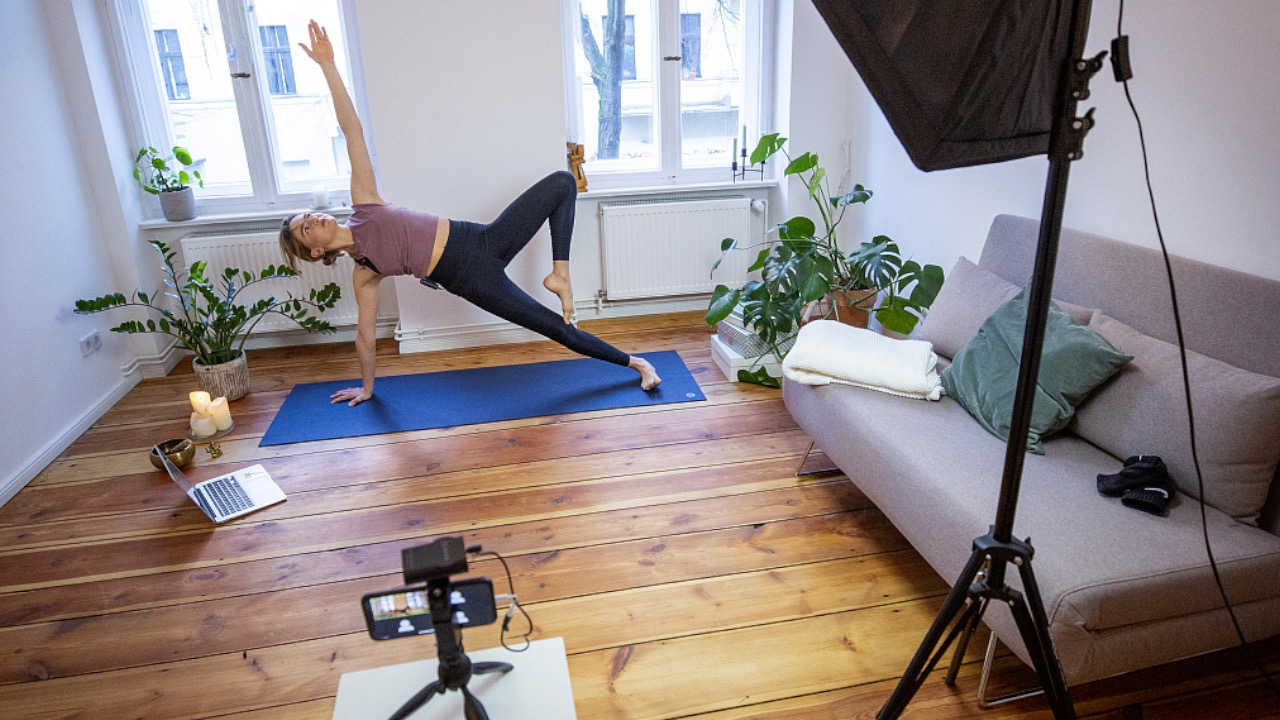
During the COVID-19 pandemic, which broke out in early 2020, people around the world have been required to stay at home, while businesses have come to a halt.
But this pandemic has also created a moment in which people have started to pay major attention to their own health; many in China were embarrassed of themselves when they discovered that Chinese respiratory expert Zhong Nanshan, 84, still has a muscular physique.
CGTN has talked to some people in fitness related sectors to find out how you can stay fit at home.
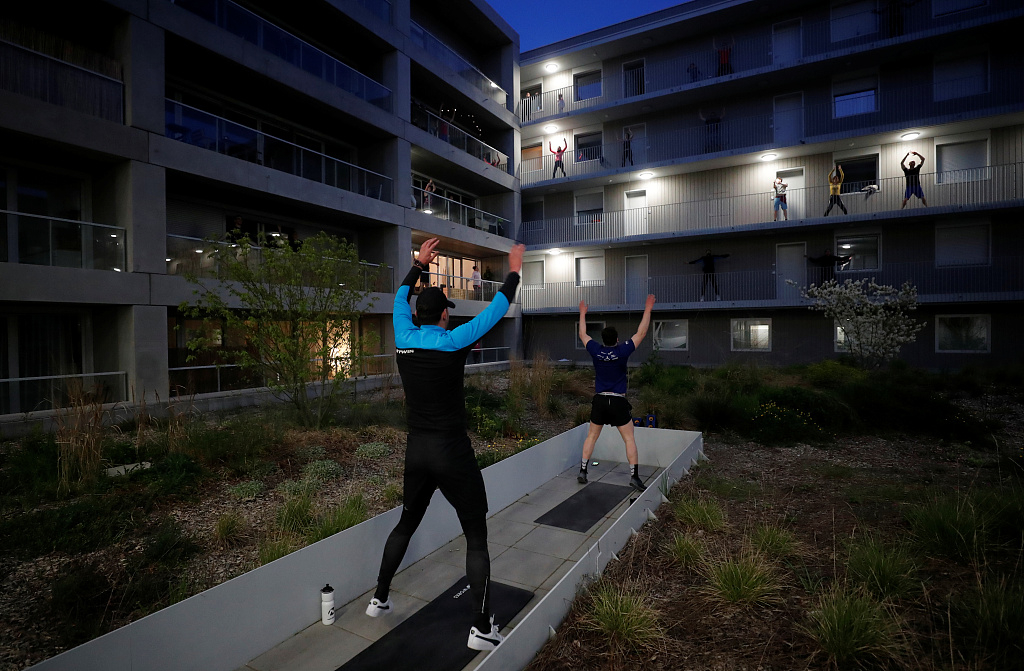
Residents exercise on their balconies following fitness trainers in Nantes, France, March 27, 2020. /VCG
Residents exercise on their balconies following fitness trainers in Nantes, France, March 27, 2020. /VCG
Fitness apps
Fitness apps are not a new thing. They've been around for at least the past five years. But it's been a challenge for traditional gyms to know how to move their offline services online quickly. But, Keep, a major Chinese fitness app, may be the "winner" during this pandemic.
Created to offer pre-recorded online classes, and now also selling sports equipment online, Keep garnered many downloads following the coronavirus outbreak.
Usually, they invite some famous sports people or social media celebrities to shoot training classes for them. Currently live streaming classes play a more important part in their business.
Serena Li, the PR director of Keep, told CGTN that at the end of 2019, the company had already discussed increasing live streaming classes, while the pandemic accelerated the process from just an idea to reality. "It took us only around 10 days to achieve it on January 31," Li said.
The company chose to cooperate with the short video app Douyin, which has a qualification to be a live streaming business, to provide many live fitness classes.
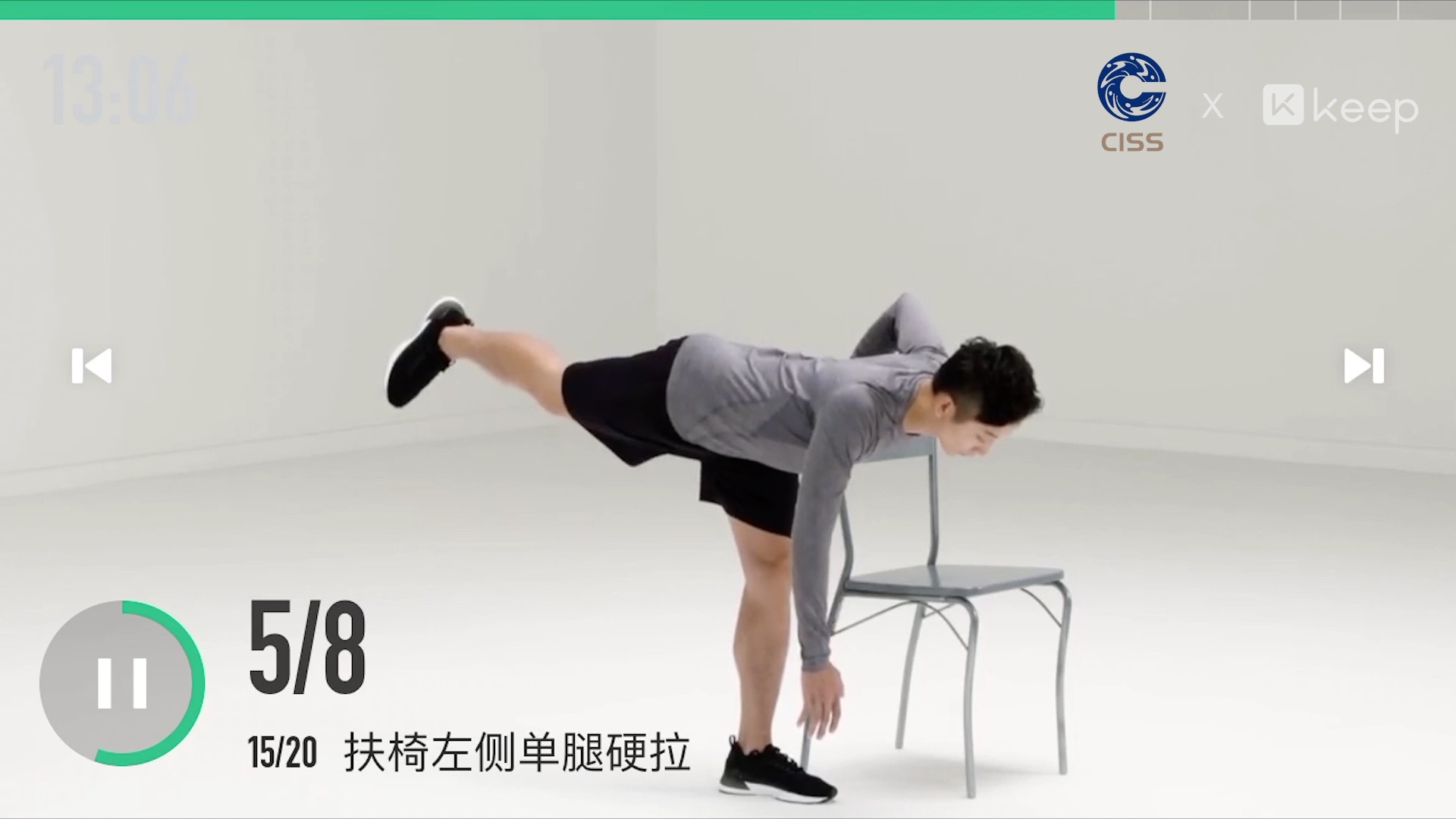
Screenshot from a pre-recorded online class of Keep app. /Courtesy of Keep
Screenshot from a pre-recorded online class of Keep app. /Courtesy of Keep
Mostly, the coaches at their own offline gyms called Keepland give free live streamed classes now. They also use video conferences to conduct sessions with students, often sticking to their usual schedule. But that has its limits.
Nina Zheng, a member of Keepland in Beijing, told CGTN that, "to do fitness at home, you have to at least prepare a place, get some necessary equipment such as a yoga mat and some stuff to serve as weights. It's not that convenient compared to going to the gym. And the phone's screen is too small to clearly see all the details of some actions, even though my coach conducts me through the concall, I feel better working out in the gym."
Although the coronavirus outbreak is frustrating for sports industry, it is still the best way to keep the related areas alive. As Li said, "Our coaches teach online in closed Keeplands, and their class hour fee is nearly same with that in the gym."
Li added that, in this period, Keep also did several marketing activities, such as cooperating with some famous fitness models, sportswear brands and specialized sports organizations to do some live streamed classes, as well as creating customized products for some big companies if they require their employees to do fitness while they are self-quarantined.
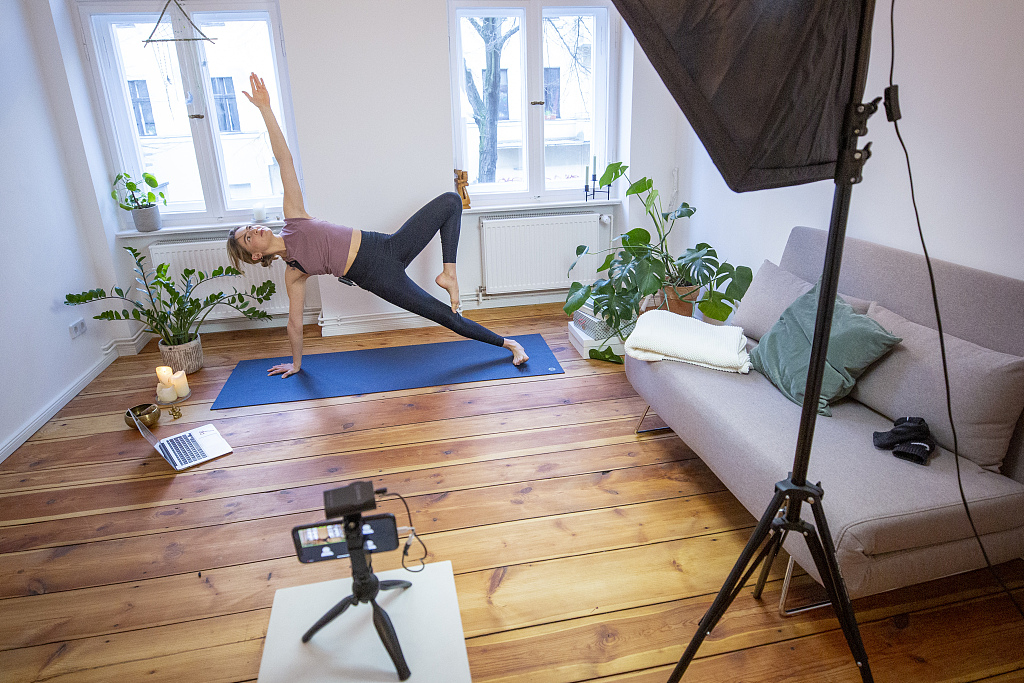
A yoga coach does online stream session in her home in Berlin, Germany, March 25, 2020. /VCG
A yoga coach does online stream session in her home in Berlin, Germany, March 25, 2020. /VCG
Online fitness celebrities
Some Chinese social media including Weibo and other platforms have launched some activities online to push people to share their home training or dieting stories.
Just the topic of "The plan of keeping fit and doing sports at home" on Weibo has been read around 3 billion times and has gotten over 1 million posts from February 25 to March 30.
The group of people who have contributed the most to these kind of activities are fitness web celebrities.
"Shuaisoserious" (simplified as "Shuai" in the following text) is a Chinese million-class fitness vlogger who told CGTN some behind-the-scenes stories about his self-media career.
Originally, Shuai just documented about his weight-losing journey through photos online to encourage himself, which received a lot of positive feedback, he gradually uploaded more content about his daily fitness work, body building process and fashion lifestyle.
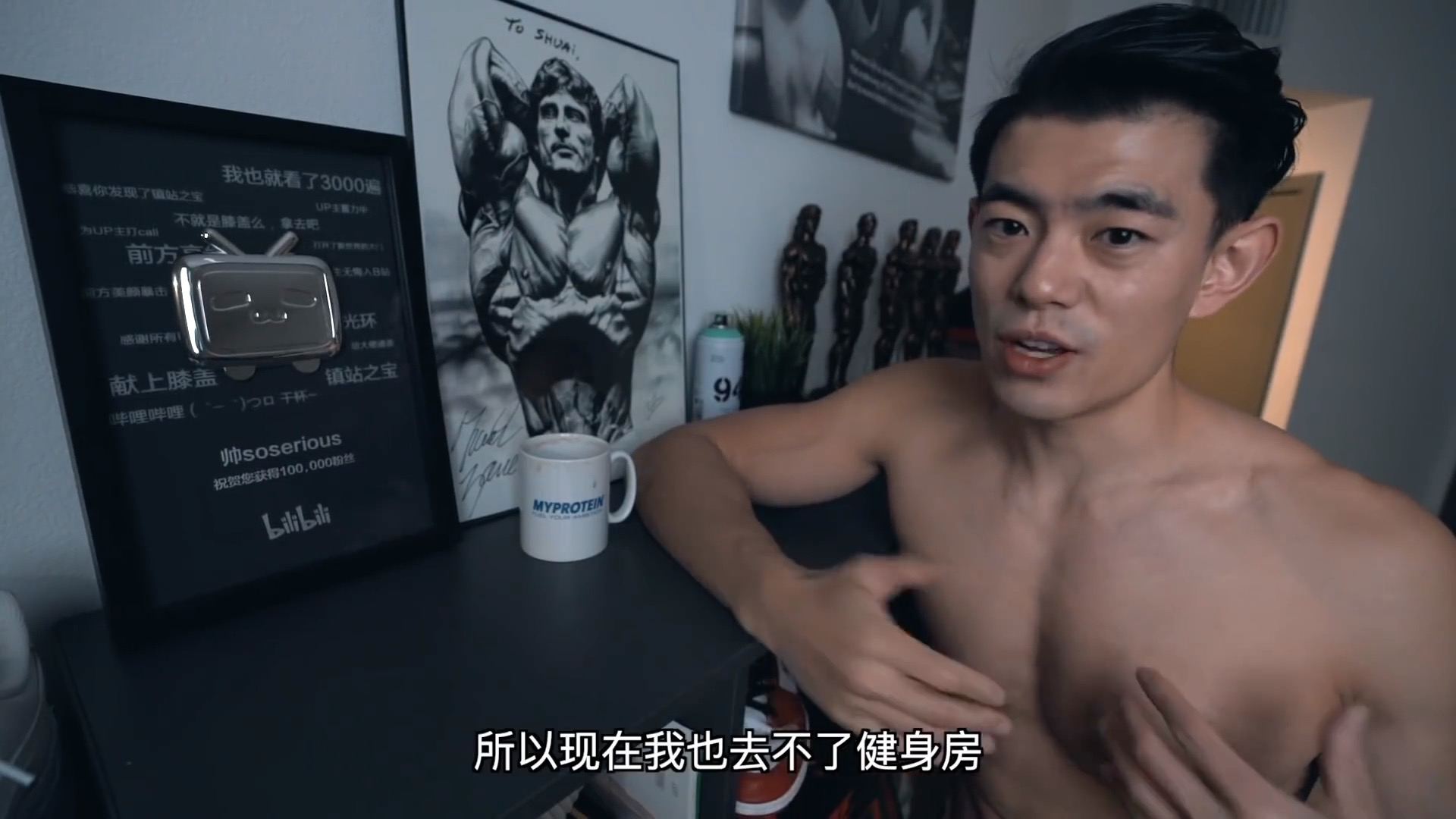
Screenshot from Shuaisoserious' video released during the COVID-19 pandemic. /Courtesy of Shuaisoserious
Screenshot from Shuaisoserious' video released during the COVID-19 pandemic. /Courtesy of Shuaisoserious
Thanks to his experience as a physical education major student in China and as a professional fitness instructor in America, Shuai is able to offer many high-quality videos.
Having a perfect figure is already difficult enough, but that may be the easiest part of Shuai's work, as he has to wear different hats including scriptwriter, cameraman, protagonist and video editor, and sometimes, he even sets film-making standards for his work.
Although he prefers to present his own understanding about fitness, Shuai still keeps learning from fresh sports science references as giving an audience the "right" information could decide the career of a vlogger, and maybe some widely recognized theories could one day be overturned.
Living in San Diago, in California, Shuai isn't able to go to the gym to shoot videos as the coronavirus has heavily affected the United States as well. But his work continues, except for the delivery of his clothing line.
He has mainly done some home training theme vlogs and tutorials for the moment. And one collaboration work with 10 other sports-related uploaders for Chinese video website Bilibili has garnered 1.59 million views, a relatively high result for similar content posts, which shows Chinese netizens' enthusiasm for having good health.
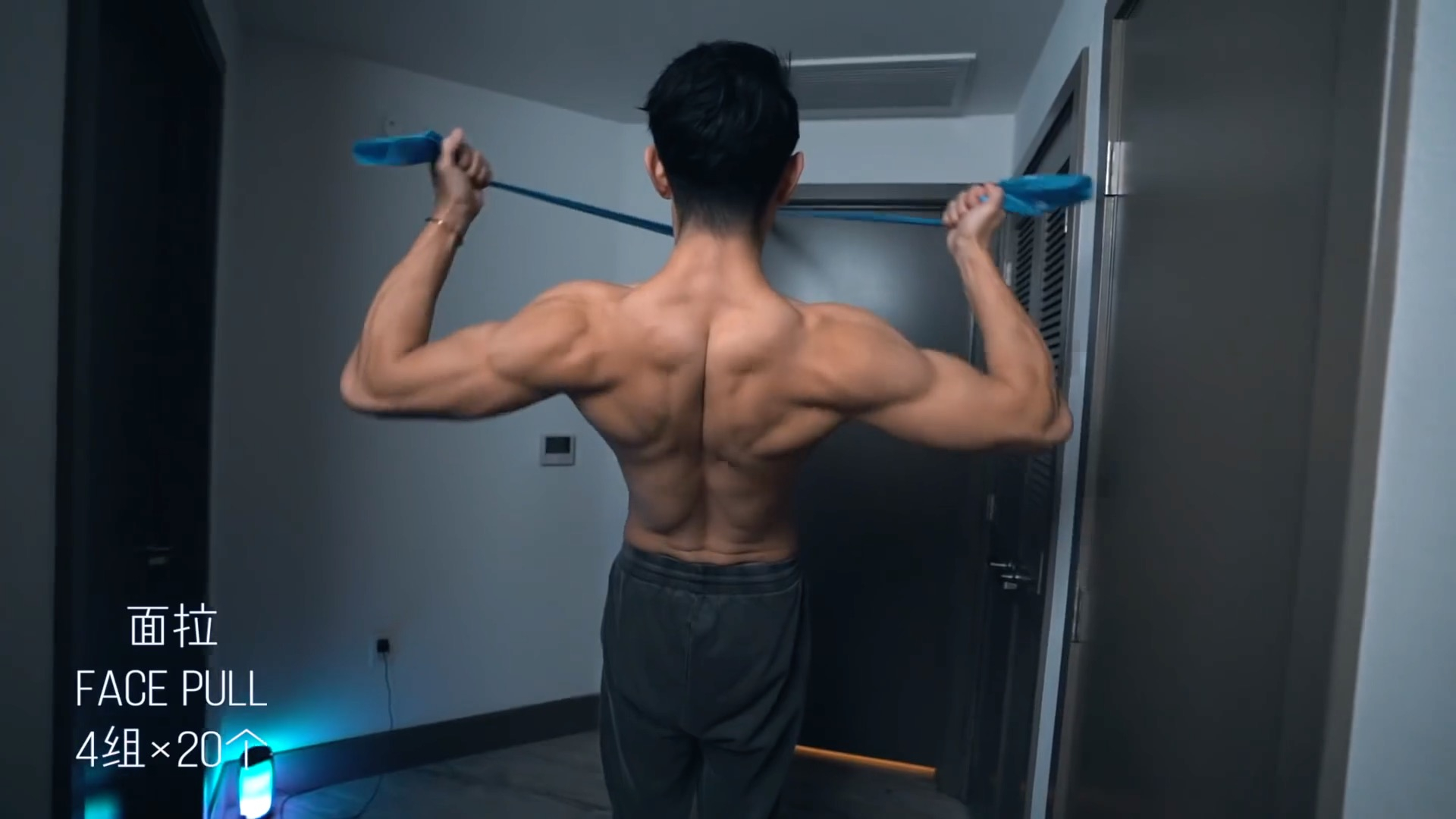
Screenshot from Shuaisoserious' video released during the COVID-19 pandemic. /Courtesy of Shuaisoserious
Screenshot from Shuaisoserious' video released during the COVID-19 pandemic. /Courtesy of Shuaisoserious
Intelligent hardware
Talking about enthusiasm, one video gaming accessory witnessed an incredible rise in price online.
Ring Fit Adventure is a motion sensing game specialized for Nintendo Switch, and the average price for a software and device package on Taobao now is around 1,500 RMB, which has doubled since its release last October.
Keep also has some smart fitness equipment on sale, such as weighing scale, sports bracelet, treadmill, spinning and so on. Zheng said: "My friend has tried its treadmill, and there's some lessons already inside, she just followed the instructions and then there's some body and sports data sent to her app account."
Even for Zheng herself, every time she started the lesson in the gym, she was required to wear a heart rate belt and the real-time data would be showed on the TV screen in the front of classroom. That information has helped her better understand the effects of exercise.
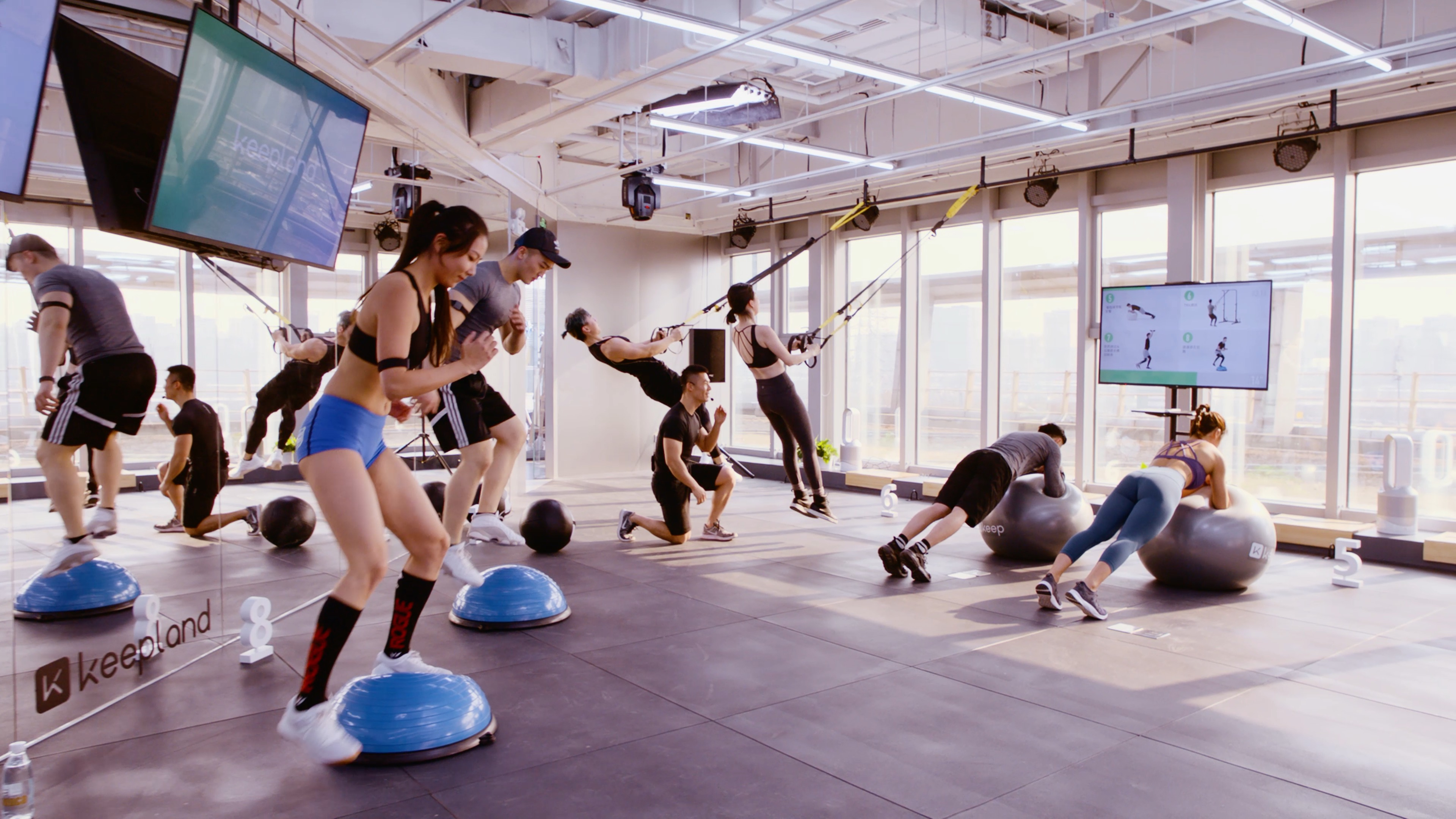
People wearing heart rate belt while doing sports in Keepland. /Courtesy of Keep
People wearing heart rate belt while doing sports in Keepland. /Courtesy of Keep
Written at the end
Under the long pandemic shadow, it is expected that many offline companies will have to transform their business to online, and gamification of doing exercise may be becoming a trend.
But as Shuai has mentioned many times in his videos, if you have proper conditions, finding a professional coach is the best way to achieve your fitness goal, as face-to-face communication has an irreplaceable value in sports.